Reindeer husbandry is practiced in Norway, Sweden, Finland, Russia, Mongolia, China, Alaska, Canada, Greenland and Scotland by more than 20 different ethnic groups. Reindeer herders have managed vast areas in the Arctic through thousands of years. These areas have only recently, in modern times, become significant for other industrial interests such as oil and gas.
The fall of the ‘iron curtain’ and the Brundtland commission’s report to the UN, ‘Our Common Future’, enabled Norwegian Saami reindeer herders to established formal cooperation with the Soviet Scientific Academy and with reindeer herders in the Soviet Union. Already in 1990 a delegation, funded by the Norwegian Ministry of Foreign Affairs, visited Even reindeer herders in Topolinij in the Republic of Sakha (Yakutia) in East Siberia. The delegation included representatives from Saami Reindeer Herders’ Association of Norway (NRL), the Norwegian Ministry of Agriculture, the Norwegian Reindeer Administration and the University of Tromsø.
In September 1993 NRL organized an international Reindeer Peoples’ Festival in Tromsø, in cooperation with the Russian Government and reindeer herders in Russia. Approximately 360 representatives from reindeer husbandries in Norway, Sweden, Finland, Russia and Alaska participated in the Festival. This was the first time in history that the different reindeer peoples were able to meet with each other. This event marked the beginning of unique cross-boarder cooperation between the circumpolar reindeer peoples which eventually resulted in the establishment of the Association of World Reindeer Herders.
The 1stWorld Reindeer Herders’ Congress took place in the city of Nadym, in the Yamal region of Russia, in 1997, and was hosted and funded by the Russian government together with the regional authorities in Yamal. Participants included representatives from the reindeer husbandry in the Nordic countries and in Russia. The Congress resulted in the establishment of the Association of World Reindeer Herders (WRH). The aim of the association is to promote professional, cultural, social and economic relations between world reindeer peoples, as well as to disseminate information about the reindeer husbandry.
The establishment of WRH provided reindeer herders a forum for contact and cooperation, which contributed to bring reindeer husbandry on the international agenda. Already in 1999, the Norwegian Minister of Foreign Affairs, Mr. Knut Vollebæk, took the initiative to add reindeer husbandry on the agenda of the international Arctic cooperation, which resulted in that WRH was, in 2000, given the status as observer in Arctic Council.
The 2ndWorld Reindeer Herders’ Congress in Anar (Inari), Finland, in 2001, was funded by the Finnish Government. The Congress adopted the ‘Anar-Declaration’, which is the first statement developed by reindeer herders, and presents guidelines for the development of a sustainable reindeer husbandry for the future.
The 3rdWorld Reindeer Herders’ Congress took place in the city of Yakutsk, in the Russian Republic of Sakha (Yakutia) in March 2005. The Congress adopted the ‘Yakutsk-Declaration’, which emphasizes reindeer husbandry’s participation in the international cooperation in Arctic. The Congress was hosted and funded by the Government of the Republic of Sakha (Yakutia) and was part of an outstanding and impressive campaign for promoting the reindeer husbandry and the indigenous peoples’ of the Republic.
Great deals of resources have been invested in the international cooperation between world reindeer herders over the last 15 years. The Saami reindeer husbandry, the Norwegian government, Russian reindeer herders, central and regional authorities in Russia, as well as reindeer herders and authorities in Finland have been especially active in promoting this cooperation. Initiatives designed to secure that the resources invested benefit reindeer husbandry and the Arctic communities in the future are therefore needed.
The establishment of an International Centre for Reindeer Husbandry in Kautokeino represents one measure to secure the future of the unique cooperation in the North. The establishment enjoys wide professional and political support, both nationally and internationally, and is recommended by, among others, the Arctic Council in the report ”Sustainable Reindeer Husbandry” (2002), and by the 3rd World Reindeer Herders’ Congress in the ‘Yakutsk Declaration’ of March 2005. It is also recommended by the Government appointed committee of exports in the report published as NOU 2003:32 (Official Norwegian Report) entitled ‘Look North! Challenges and Opportunities in the Northern Areas’. The Norwegian Minister of Foreign Affairs, Mr. Jan Petersen, announced in the 4th Arctic Council Ministerial meeting in Iceland, November 2004: ”..Norway has decided to establish an international centre for reindeer herders in Arctic, in Kautokeino, in close co-operation with the World Reindeer Herders. This will be a resource centre for exchange of information between herders in different countries and promoting co-operation between them”. This was followed up by the government in its report nr. 30:2005 to the Storting entitled ‘Opportunities and Challenges in the North’, which recommends establishment of an international information centre in close cooperation with WRH. The Norwegian Storting supported the recommendation by adopting the ‘Proposition to the Storting’ no. 264 (2005), which announces that “… it is important to strengthen the cooperation between northern indigenous communities and other industries”.
The Norwegian Government has followed up its proposal to the Storting. It has been decided that the Centre will be subjected to the Norwegian Ministry of Local Government and Regional Development. The Minister responsible, Ms. Erna Solberg, has, together with WRH and other ministries concerned, facilitated to establish and make the Centre operative within September 2005. The Centre will be established as an independent professional unit, with its own board and budget. The activity is funded by the Norwegian Government through yearly grants from the budgets of the Ministry of Local Government and Regional Development, the Ministry of Agriculture and the Ministry of Foreign Affairs. The Centre is to be a knowledge base for providing and exchanging information and documentation between different reindeer peoples, the authorities and research- and academic communities at the national and international levels. The Centre will thus contribute to adding value, improve information and enhance understanding for world reindeer husbandry and reindeer peoples, their traditional knowledge and future development. Information and dissemination will be conducted visually, in written form and electronically.
The establishment of the International Centre for Reindeer Husbandry in Kautokeino is one of Norway’s contributions to strengthen cooperation in the North and in the Arctic Council.
We are sorry to inform that event is cancelled. More information here
As part of the 1st Arctic Indigenous Peoples´ Food Congress there will be a training workshop for Arctic indigenous youth - ´Food innovation leadership´. It is a practical oriented workshop led by Nord University Business School together with UArctic EALAT Institute, International Centre for Reindeer Husbandry and Association of World Reindeer Herders. Participation in the workshop is limited to 20 students. We welcome participation from Arctic indigenous peoples that are/or wish to be food entrepreneurs and food innovators. PS: Due to limited capacity for participation there may be a need to prioritize indigenous youth. Participation in the workshop is without cost.
Topics addressed:
Identifying and understanding how to bring business ideas to markets, preparing a business concept, analyzing business opportunities, identifying own entrepreneurial potential, participating in creative processes for business development, grasping basic concepts of innovation and circular economy, as well as understanding basics of indigenous food systems and traditional indigenous knowledge on food. Graduating students have expertise in basic analysis of business ideas, description of business concepts, and oral presentation of, pitching and arguing their proposed business ideas and solutions externally.
REGISTRATION IS CLOSED!!!
РЕГИСТРАЦИЯ ЗАКРЫТА!!!
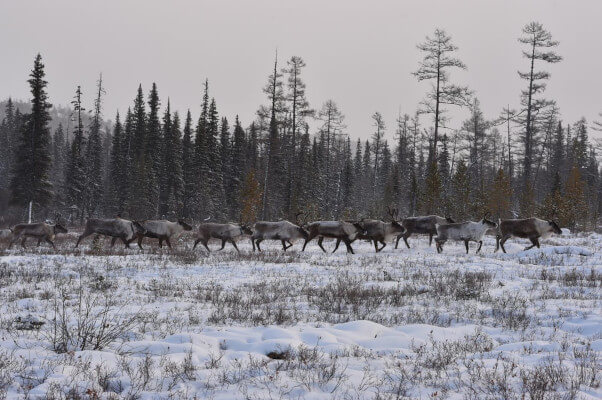
Sorry, but the page you are looking for might have been removed, had its name changed, or is temporarily unavailable.
We apologize for the inconvenience.
We recommend to try one of the following:
- If you typed the page address in the Address bar, make sure that it is spelled correctly.
- Maybe the page just got moved to a different location on the website.
- Use our sitemap to find the content you are looking for.
- Click the Back button in your browser to try another link.
- In the case of a broken link, please report it to the ICR.
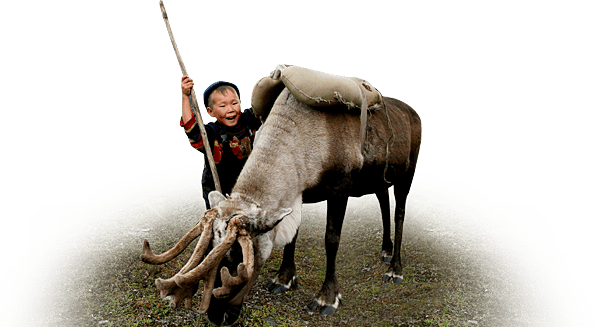
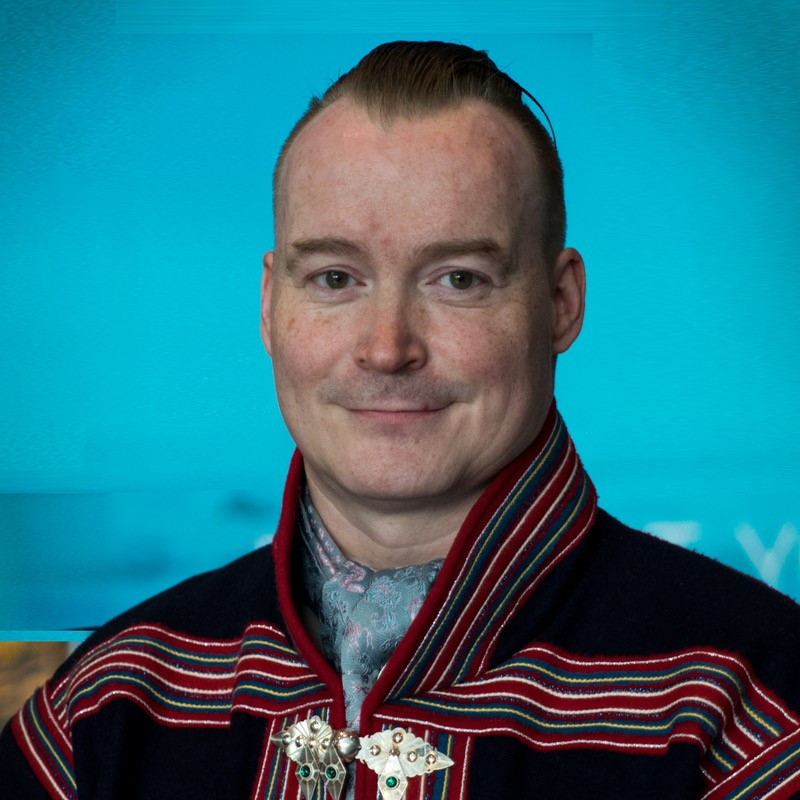
Anders Oskal (Secretary General)
Anders Oskal is the Secretary General of the Association of World Reindeer Herders and the Executive Director of the International Centre for Reindeer Husbandry in Guovdageaidnu/ Kautokeino, Norway. Oskal is a reindeer herding Sámi from Northern Norway, with a Master of Science in Business specialized in Innovation and Entrepreneurship. Prior to his current position, he worked for a number of years with business development in reindeer herding.
Contact: office[at]reindeercentre.org
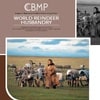 CAFF World Reindeer Husbandry: CBMP EALÁT-Monitoring. Expert Network Monitoring Plan. Supporting publication to the CAFF Circumpolar Biodiversity Monitoring Program – Framework Document. By WRH and ICRH in cooperation with CAFF. CAFF CBMP Report No. 10, CAFF International Secretariat, Akureyri, Iceland (pdf, 11 pages, 1 Mb).
CAFF World Reindeer Husbandry: CBMP EALÁT-Monitoring. Expert Network Monitoring Plan. Supporting publication to the CAFF Circumpolar Biodiversity Monitoring Program – Framework Document. By WRH and ICRH in cooperation with CAFF. CAFF CBMP Report No. 10, CAFF International Secretariat, Akureyri, Iceland (pdf, 11 pages, 1 Mb).
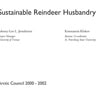 Sustainable Reindeer Husbandry:A Report prepared by the Centre for Sami Studies for the Arctic Council (2000-2002) with significant input from the Association of World Reindeer Herders. (pdf 164 pages, 8.5 Mb)
Sustainable Reindeer Husbandry:A Report prepared by the Centre for Sami Studies for the Arctic Council (2000-2002) with significant input from the Association of World Reindeer Herders. (pdf 164 pages, 8.5 Mb)
- Seminára Boazodoallu Árbevirolas Máhtu Birra. Njukcamánu 14-15 B. 2003, Guovdageaidnu. ca. 40 pages. (Seminar proceedings, Sámi and Norwegian).
- The Reindeer Peoples in the Russian Empire. Jan. 2000. ca. 100 pages (Working Paper, English).
- Reindeer Husbandry of Sakha (Yakutia) Republic. Moscow, Working Paper No. 5/2000, ca. 120 pages. (Working Paper, Russian, English, Norwegian).
- Reindeer Husbandry in Yamal Nenets Autonomous Okrug. Tromsø. Working Paper 4/1999, ca. 100 pages. (Working Paper, Russian, English, Norwegian).
- Reindeer Husbandry in Republic of Komi. Tromsø. Working Paper no. 3/1999. ca. 75 pages (Working Paper, Russian, English, Norwegian).
- Reindeer Husbandry in Nenets Autonomous Okrug. Tromsø. Working Paper no. 2/1999. ca. 70 pages. (Working Paper, Russian, English, Norwegian).
Guideline in regard to the World Reindeer Herders’ Championship in Lassoing DOWNLOAD
Правила чемпионата по метанию аркана СКАЧАТЬ
These Statutes of the Association of World Reindeer Herders were approved at the first Congress of World Reindeer Herders, held in Nadym on the 2nd day of March one thousand nine hundred and ninety seven, amended at the second Congress of World Reindeer Herders, held in Inari on the 22nd day of June two thousand and one, at the fourth Congress of World Reindeer Herders, held in Kautokeino on the 3rd day of April two thousand and nine, and at the fifth Congress of World Reindeer Herders, held in Aoluguya on the 28th day of July two thousand and thirteen.
УСТАВ Ассоциации "Оленеводы Мира" на русском языке
§-1 Purpose
1.1 The purpose of World Reindeer Herders is to promote professional, commercial and cultural contact between the different reindeer peoples/herders of the world and to disseminate information about reindeer husbandry in the best possible way.
1.2 World Reindeer Herders is a legal entity and is identified by its emblem, stamp and other properties. Its revenues are held in a currency account in a bank in one of the countries represented in the Association.
1.3 World Reindeer Herders has the right to enter into contracts or agreements, to be plaintiff or to be called as respondent to public courts or courts of arbitration. World Reindeer Herders possesses full rights over its material and intellectual properties.
§-2 Membership
2.1 World Reindeer Herders will admit as full members persons engaged in reindeer husbandry and members of their families and reindeer husbandry brigades, districts, organisations and companies as they occur in the respective reindeer husbandry countries and regions.
2.2 World Reindeer Herders can admit as associated members persons who, though not actively involved in herding reindeer, nevertheless have a strong professional engagement in reindeer husbandry, for example through its administration or in research. Companies and organisations with a clear professional interest in reindeer husbandry may likewise, be admitted as associate members.
2.3 The Board of World Reindeer Herders shall maintain an inventory of the membership of the organisation. The Board of World Reindeer Herders has the right to accept or reject an application for membership and to determine into which category of membership a successful applicant shall be received.
2.4 Admission to World Reindeer Herders as either full member or associated member is condition on the payment of a subscription fee. Membership fees shall be set by the Board of World Reindeer Herders.
2.5 The Board may set different fees for full membership and associated membership. The Board may also set different membership fees for the different geographical regions represented in World Reindeer Herders.
§-3 World Reindeer Herders’ Congress
3.1 The World Reindeer Herders’ Congress is the highest authority of the Association. Congress is empowered to lay down and amend the Statutes of the Association and to elect the Council of World Reindeer Herders. The Council may remove members of the Board and appoint new members as necessary and/or delegate authority to the Board to do this.
3.2 A Congress of the World Reindeer Herders shall convene every fourth year. The Board of the World Reindeer Herders shall, in agreement with the chairmanship of the Council of the World Reindeer Herders, give 6 – six – months’ written notice of a Congress.
3.3 An agenda, including a description of each specified item of agenda, shall be distributed 2 – two – months before the opening of Congress. The agenda shall include the following points:
- Approval of delegates
- Approval of notice given of the Congress
- Election of President and election of Signatories of Minutes
- Approval of the Agenda
- Report of the Board of World Reindeer Herders
- Election of the Council
- Selection of the venue for the next Congress
- Any other business
3.4 Items of agenda for Congress must be received by the Board not less than 2 – two – months before the opening of Congress.
3.5 Items of agenda received later than this can nevertheless be deliberated providing no objection is raised by any of the delegates present.
3.6 An extraordinary Congress of World Reindeer Herders may be convened at the discretion of the Board in agreement with the chairmanship of the Council. Three months’ notice of an extraordinary Congress shall be given in writing.
§-4 Composition of congress
The Congress of the World Reindeer Herders shall, as far as possible, include representatives of all regions of the world where reindeer husbandry is practised.
The following regions have the right of representation by delegates at Congress:
- Chukotka Autonomous Area
- Koryak Autonomous Area
- Kamtchatka Region
- Magadan Region
- Amur Region
- Sakhalin Region
- Chita Region
- Buryat Republic
- Irkutsk Republic
- Tuva Republic
- Khabarovsky Krai
- Sakha (Yakutia) Republic
- Evenk Autonomous Area
- Khanty-Mansi Autonomous Area
- Taimyr (Nenets-Dolgan) Autonomous Area
- Yamal-Nenets Autonomous Area
- Komi Republic
- Nenets Autonomous Area
- Archangel Region
- Murmansk Region
- Norway
- Sweden
- Finland
- Greenland
- Canada
- Alaska
- Mongolia
- China
- Scotland
The Board of World Reindeer Herders will determine the representation at Congress of the different regions in terms of the number of delegates from each region. Representation at Congress will be based on the number of members of World Reindeer Herders in each region while also ensuring that regions are represented according to both the size and significance of reindeer husbandry in them and which reindeer people(s) live there.
The Board of World Reindeer Herders can establish rules for the determination of the composition of delegations from different regions to ensure a reasonable balance in representation between individual members, on one hand, and reindeer husbandry organisations as they occur in their respective regions, on the other.
Delegates to Congress may be elected only among persons 18 – eighteen – years of age or older who satisfy the criteria for full membership of World Reindeer Herders.
A list of names of delegates shall be received by the Board of World Reindeer Herders not later than 2 – two – months before Congress is convened.
Only members of the Board, members of the Council and elected delegates have the right to submit proposals to congress.
Only elected delegates have right to vote at Congress. Each delegate has 1 – one – vote.
Only members of World Reindeer Herders and the invited guests of World Reindeer Herders have the right to address Congress.
The Congress of World Reindeer Herders shall achieve the necessary quorum when not less than 50% – one half – of enfranchised members are in attendance after notice of Congress has been given according to the procedure set out in these Statutes, and providing no significant objection is raised.
§-5 The Council
5.1 World Reindeer Herders shall have a Council consisting of 2 – two – representatives from each of the reindeer husbandry regions enfranchised to meet at Congress with delegates in accordance with the list specified in §-4.2 of these Statutes. The Council shall have an Executive Committee consisting of the President and 2 – two – vice-presidents.
5.2 The Council and its executive committee are appointed by the Congress of World Reindeer Herders, and the members are elected till the next Congress is convened. The Council shall be appointed where both men and women are represented in the Council.
5.3 The Council can self accept application on replacement or appoint new council members from regions when the Congress is not convened.
§-6 Assembly of the Council
6.1 The Council shall convene immediately after it is appointed by the Congress in order to appoint the Board of World Reindeer Herders. Assemblies of the Council of the World Reindeer Herders shall generally be called and chaired by the President and Vice-presidents of the Council. The President and Vicepresidents of the Council will also select the venue for each Assembly. The Council should assemble at least once a year.
6.2 The Council shall only convene when a Council Meeting is called in written by the Executive Committee. A Council Meeting shall attend to points of agenda presented by the Executive Committee. These points of agenda – and all relevant documents – shall accompany written notice of a Council Meeting.
6.3 Reindeer husbandry regions listed in §-4.2 of these Statutes can be represented at an Assembly of the Council only by personal attendance. Every member region of the Council constitutes 1 – one – vote at an Assembly of the Council.
6.4 Resolutions of the Council shall be decided by a simple majority in open ballot unless the Council itself chooses an alternative means. In the event of a tie, the President shall have a casting vote except in cases involving of elections of persons to office. In this case, a tied vote shall be resolved by drawing lots.
6.5 The leadership of the Council is responsible to ensure the funding of the Council assemblies.
§-7 Governing board
7.1 The Board of World Reindeer Herders shall consists of minimum 3 – three – maximum 7 – seven – members. The composition of the Board shall reflect the regional proportions of reindeer husbandry as far as possible. The Board shall generally be composed in a way where both men and women are represented in the Board.
7.2 The Board shall be appointed by the Council of World Reindeer Herders. The Council shall appoint a Chair and 2 – two – Vice-chairs. The Vice-chairs shall be appointed from among members of the Board. Members of the Board are appointed for at least 2 – two – years at a time.
7.3 The Board is the highest executive organ of World Reindeer Herders when the Council or the Congress is not assembled. The Board shall ensure that World Reindeer Herders pursues its activity in accordance to and in fulfilment of the purpose, aims and guidelines, which the Association determined.
7.4 The Board of World Reindeer Herders shall govern both the running and the finances of the organisation. The Board shall be responsible for ensuring that the concerns of World Reindeer Herders are organised, run and managed in a satisfactory manner and with the proper controls. The Board may organise a Secretariat to manage its work.
7.5 The Board of World Reindeer Herders will represent the interests of the organisation to other parties. The Board can delegate to any one member of the Board or to several members of the Board collectively, or to a specified number of named members of World Reindeer Herders, the right to commit the organisation.
7.6 The Board shall report directly to the Council of World Reindeer Herders and to the Congress of the World Reindeer Herders.
§-8 Board meetings
8.1 The Board shall meet as often as the Chair considers necessary. Board meetings shall also be convened at the request of the majority of members of the Board.
8.2 Board meetings will be led by the Chair of the Board or by the Vice-chairs if the Chair is absent. In the absence of both the Chair and the Vice-chairs, Board meetings will be chaired by a member of the Board elected from and by those members of the Board who are present.
8.3 If any member of the Board is not summoned to or is otherwise not given the option of attending a Board Meeting, he/she can request that any resolution passed in his/her absence shall be brought before the Board again at a subsequent meeting.
8.4 Valid resolutions of the Board shall be determined by the majority vote of those members present. In the event of any tied vote, the Chair shall have a casting vote.
8.5 The Board shall follow the normal Board protocol and rules governing the legitimacy of Board meetings. No resolutions which clearly are illegal or incompatible with the Statutes of World Reindeer Herders shall be passed.
8.6 Remuneration for members of the Board shall be determined by the Board itself.
§-9 Amending the Statutes
9.1 World Reindeer Herders can lay down and amend the Statutes of the organisation only when a proposal to this effect is tabled and appropriately described within the deadlines stipulated for the convention of Congress.
9.2 A proposal for minor changes and amendments to the Statutes can nevertheless be deliberated by Congress providing no objection is raised by any enfranchised member present at Congress.
9.3 Alteration of the Statutes is valid only after recording a vote of approval of not less than two-third of voting members present at Congress.
§-10 Finances of World Reindeer Herders
10.1 Sources of World Reindeer Herders’ properties are:
- Subscriptions of members of the Association
- Payment made by sponsors
- Revenues derived from the activities of the Association
- Other payments, which are not restricted by the legislation of the respective countries represented in the Association.
10.2 An audit of accounts may be organised to ensure adequate control of the financial activity and the use of properties of the Association.
§-11 Dissolving the organisation
11.1 A resolution of the dissolution of World Reindeer Herders can be accepted only after recording a vote of approval of not less than two-third of voting members present at a legally convened Congress.
11.2 Once a resolution is passed to dissolve World Reindeer Herders, the Board shall determine in what manner the dissolution shall proceed.
§-12 Interpretation of the Statutes
12.1 The Statutes are written in English, Russian and Northern-Sámi. Should there arise any unclarities about the interpretation of the Statutes, the English version is the primary document.
The Jokkmokk Declaration
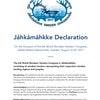 From the World Reindeer Herders Congress in Sweden, 2017
From the World Reindeer Herders Congress in Sweden, 2017
Скачать Йоккмоккскую декларацию Всемирного конгресса оленеводов 2017 года на русском языке
The Aoluguya Declaration
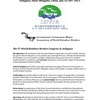 From the World Reindeer Herders Congress in Aoluguya, 2013
From the World Reindeer Herders Congress in Aoluguya, 2013
Скачать Декларацию Аолугуйя Всемирного конгресса оленеводов 2013 года на русском языке
The Kautokeino Declaration
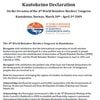 From the World Reindeer Herders Congress in Kautokeino, 2009
From the World Reindeer Herders Congress in Kautokeino, 2009
Скачать Каутокейнскую декларацию Всемирного конгресса оленеводов 2009 года на русском языке
The Yakutsk Declaration
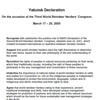 From the World Reindeer Herders Congress in Yakutsk, Sakha Republic, Russia, 2005
From the World Reindeer Herders Congress in Yakutsk, Sakha Republic, Russia, 2005
Скачать Якутскую декларацию Всемирного конгресса оленеводов 2005 года на русском языке
The Inari Declaration
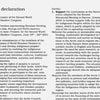 From the World Reindeer Herders Congress in Inari, Finland, 2001
From the World Reindeer Herders Congress in Inari, Finland, 2001
Скачать Декларацию Инари Всемирного конгресса оленеводов 2001 года на русском языке


